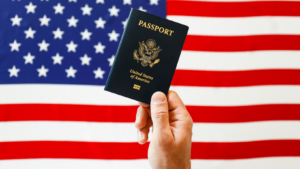In the ever-globalizing world, the concept of ‘global citizenship’ is gaining traction. It’s more than just a buzzword; it’s a lifestyle choice that offers a world without borders.
In this article, we’ll delve into the fascinating world of global citizenship passports, exploring their benefits, the process of obtaining one, and the impact on one’s lifestyle. Buckle up for a journey that’ll redefine your understanding of citizenship in the 21st century.
Global Citizenship Passport
What Is a Global Citizenship Passport?
A global citizenship passport represents a gateway to worldwide travel, living, and working, unrestricted by typical geographical boundaries. Unlike traditional citizenship tied to one specific country, global citizenship transcends boundaries—much like the internet or a semester studying abroad. One can gain a global citizenship passport by investing in programs run by various countries. It offers its holders the freedom to move across the globe, access business opportunities, experience diverse cultures, and establish residences in multiple countries.

The concept of a global citizenship passport derives from a world view that recognizes the interconnectedness of nations. In a world growing closer through technology, trade, and travel, this ideology perceives every human being as part of a global community, rather than a resident of a single location. As a result, individuals who adopt this viewpoint enjoy the privileges, responsibilities, and freedom associated with being global citizens. Furthermore, through the global citizenship passport, individuals embody this ideology, gaining tangible access to the borderless lifestyle touted in this perspective. The rationale behind pursuing a global citizenship passport involves the application of this ideology, thereby creating opportunities for international mobility, cultural immersion, and global economic participation.
Benefits of Holding a Global Citizenship Passport
Evolving from the notion of global interconnectedness, a global citizenship passport brings forth a host of privileges. These range from simplifying international travel to facilitating diverse global collaborations. Various countries offer programs enabling individuals to obtain such a passport, encouraging the immersion into global community and culture. Further, it helps to nurture the freedom associated with worldwide residential capabilities and participation in global economic affairs.
Easier International Travel
Holding a global citizenship passport simplifies international travel. Individuals aren’t confined to stringent travel regulations associated with a single country of citizenship. It bypasses visa applications and long queues, allowing immediate travel plans. For example, a global citizen passport from Saint Kitts and Nevis eliminates the need for visas to over 150 countries, including member countries of the European Union and Schengen Area.

A global citizenship passport opens doors to varied business environments and cultural contexts, fostering chances for global collaboration. It paves the path for entrepreneurs and professionals to expand their networks beyond geographical limitations. A notable instance can be seen in Singapore, renowned for its robust business ecosystems. Singapore’s passport, deemed one of the most powerful, allows easy ingress to around 190 countries, facilitating cross-border business collaborations and nurturing international business relationships.
Challenges and Criticisms of the Global Citizenship Passport
Despite the exciting benefits associated with the global citizenship passport, this concept doesn’t exist without its fair share of criticisms and challenges. Two critical areas of contention tend to come across often – legal and political implications, alongside ethical concerns.

Global citizenship passports offer a tantalizing prospect of a borderless lifestyle, opening doors to international travel and economic opportunities. Yet, it’s not without its share of challenges. Countries like St. Kitts and Nevis and Cyprus are leading the way, turning these passports into catalysts for foreign investments. Businesses, too, are finding value in them for their international operations. But the world isn’t unanimous in its reception. Legal, political, and ethical concerns continue to stir debates. Despite the controversy, the demand among high-net-worth individuals is on the rise, indicating a shift towards stability and global mobility. As this trend continues, it’s crucial for countries to balance economic benefits with legalities, security, and fairness. Ultimately, the success of global citizenship passports will depend on how well these issues are addressed.
